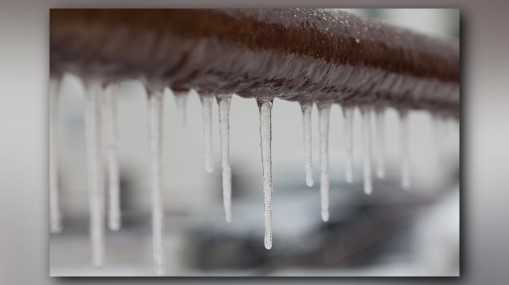Avoiding Frozen Pipes in Winter: Critical Advice
Avoiding Frozen Pipes in Winter: Critical Advice
Blog Article
What're your insights and beliefs about 6 Ways to Prevent Frozen Pipes?

Winter can damage your plumbing, specifically by freezing pipes. Here's just how to avoid it from taking place and what to do if it does.
Intro
As temperature levels drop, the threat of frozen pipelines increases, potentially bring about costly repair work and water damages. Comprehending exactly how to prevent frozen pipelines is vital for house owners in chilly climates.
Avoidance Tips
Protecting at risk pipelines
Cover pipes in insulation sleeves or use warm tape to shield them from freezing temperature levels. Concentrate on pipes in unheated or external areas of the home.
Home heating methods
Keep indoor areas effectively heated up, specifically areas with pipes. Open up cupboard doors to allow cozy air to distribute around pipes under sinks.
Exactly how to determine icy pipes
Seek lowered water flow from faucets, uncommon odors or sounds from pipelines, and noticeable frost on subjected pipelines.
Long-Term Solutions
Structural modifications
Think about rerouting pipes away from exterior wall surfaces or unheated locations. Add additional insulation to attics, basements, and crawl spaces.
Updating insulation
Buy premium insulation for pipelines, attics, and wall surfaces. Proper insulation aids preserve constant temperatures and reduces the danger of icy pipelines.
Protecting Outdoor Pipes
Yard pipes and outside faucets
Detach and drain garden hoses prior to winter season. Set up frost-proof spigots or cover exterior taps with shielded caps.
Recognizing Frozen Pipelines
What creates pipelines to freeze?
Pipelines ice up when exposed to temperatures listed below 32 ° F (0 ° C) for prolonged periods. As water inside the pipes ices up, it expands, taxing the pipe wall surfaces and potentially creating them to rupture.
Dangers and damages
Icy pipes can result in supply of water interruptions, residential property damages, and expensive repairs. Burst pipelines can flood homes and create extensive structural damage.
Indicators of Frozen Water Lines
Determining frozen pipes early can prevent them from breaking.
What to Do If Your Pipelines Freeze
Immediate actions to take
If you suspect frozen pipes, keep faucets open to alleviate stress as the ice thaws. Utilize a hairdryer or towels soaked in hot water to thaw pipelines slowly.
Final thought
Avoiding frozen pipelines calls for positive measures and fast responses. By understanding the causes, indicators, and safety nets, property owners can shield their plumbing throughout cold weather.
Helpful Tips to Prevent Frozen Pipes this Winter
UNDERSTANDING THE BASICS: WHY PIPES FREEZE AND WHY IT’S A PROBLEM
Water freezing inside pipes is common during the winter months, but understanding why pipes freeze, and the potential problems it can cause is crucial in preventing such incidents. This section will delve into the basics of why pipes freeze and the associated problems that may arise.
THE SCIENCE BEHIND FROZEN PIPES
When water reaches freezing temperatures, it undergoes a physical transformation and solidifies into ice. This expansion of water as it freezes is the primary reason pipes can burst. As the water inside the pipe freezes, it expands, creating immense pressure on the walls. If the pressure becomes too great, the pipe can crack or rupture, leading to leaks and water damage.
FACTORS THAT CONTRIBUTE TO PIPE FREEZING
Low Temperatures: Extremely cold weather, especially below freezing, increases the risk of pipes freezing. Uninsulated or Poorly Insulated Pipes: Pipes located in unheated areas, such as basements, crawl spaces, or attics, are more prone to freezing. Insufficient insulation or lack of insulation altogether exacerbates the problem. Exterior Wall Exposure: Pipes running along exterior walls are susceptible to freezing as they encounter colder temperatures outside. Lack of Heating or Temperature Regulation: Inadequate heating or inconsistent temperature control in your home can contribute to frozen pipes. PROBLEMS CAUSED BY FROZEN PIPES
- Pipe Bursting: As mentioned earlier, the expansion of water as it freezes can cause pipes to burst, resulting in significant water damage.
- Water Damage: When pipes burst, it can lead to flooding and water damage to your property, including walls, ceilings, flooring, and personal belongings.
- Structural Damage: Prolonged exposure to water from burst pipes can compromise the structural integrity of your home, leading to costly repairs.
- Mold and Mildew Growth: Excess moisture from water damage can create a favorable environment for mold and mildew growth, posing health risks to occupants.
- Disrupted Water Supply: Frozen pipes can also result in a complete or partial loss of water supply until the issue is resolved.
WHY CERTAIN PIPES ARE MORE PRONE TO FREEZING
- Location: Pipes located in unheated or poorly insulated areas, such as basements, crawl spaces, attics, or exterior walls, are at higher risk of freezing.
- Exterior Pipes: Outdoor pipes, such as those used for irrigation or exposed plumbing, are particularly vulnerable to freezing as they are directly exposed to the elements.
- Supply Lines: Pipes that carry water from the main water supply into your home, including the main water line, are critical to protect as freezing in these lines can affect your entire plumbing system.
- Underground Pipes: Pipes buried underground, such as those connected to sprinkler systems or outdoor faucets, can be susceptible to freezing if not properly insulated.
https://busybusy.com/blog/helpful-tips-to-prevent-frozen-pipes-this-winter/

Do you really like reading up on How to prepare your home plumbing for winter weather? Try to leave a remark down below. We will be delighted to see your opinions about this blog entry. We hope that you visit us again in the near future. Those who enjoyed reading our blog entry kindly don't forget to pass it around. Thank-you for taking the time to read it.
Request Appointment Report this page